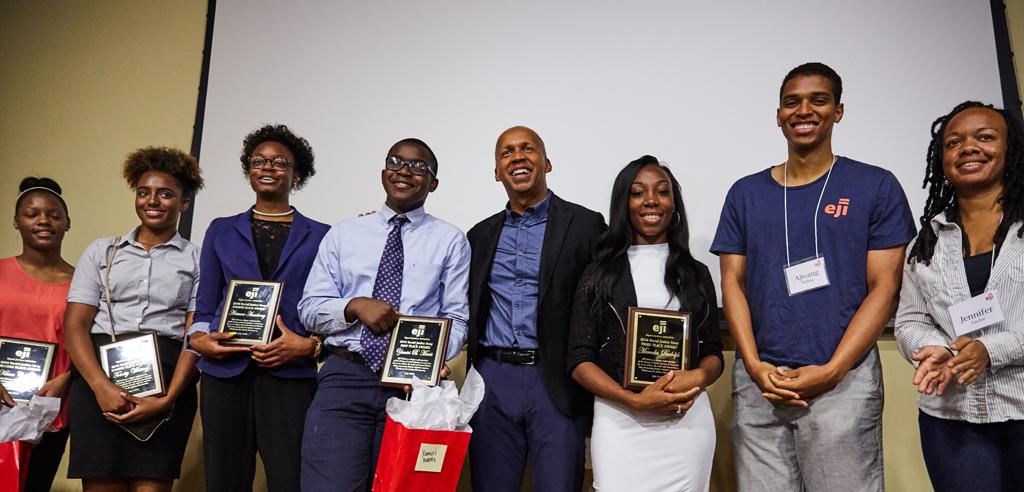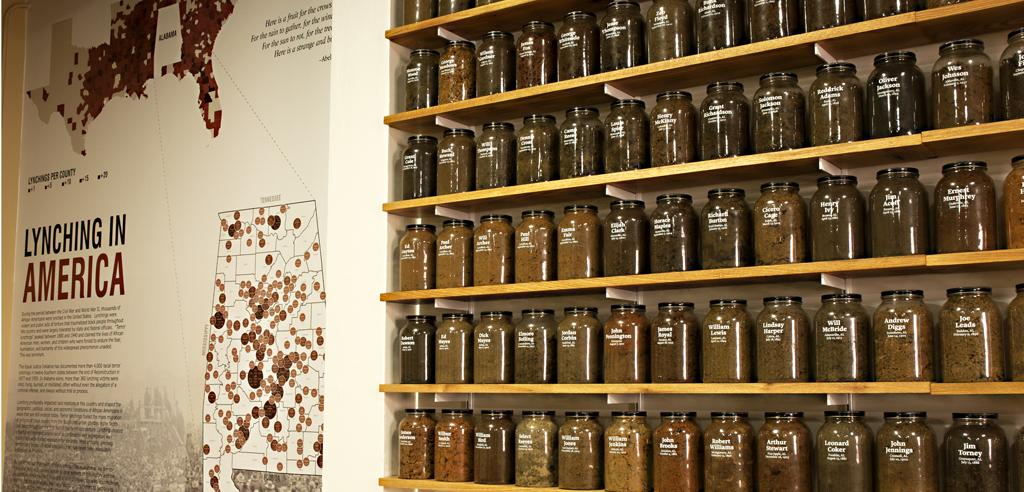On Saturday, July 30, EJI hosted more than 250 people from throughout the state and across the country for a program honoring victims of lynching in America.
The program at EJI featured speakers and short films about racial terror lynchings in Alabama. Between the Civil War and World War II, thousands of African Americans were lynched in the United States. Lynchings were violent and public acts of torture that traumatized Black people throughout the country and were largely tolerated by state and federal officials. EJI has documented more than 4000 racial terror lynchings in 12 Southern states between the end of Reconstruction in 1877 and 1950 — more than 400 of these victims were lynched in Alabama.
Following the program, participants traveled across the state to collect soil from lynching sites. This soil collection project is intended to bring community members closer to the legacy of lynching and to contribute to the effort to build a lasting and more visible memory of our history of racial injustice. Jars of collected soil will be part of an exhibit that will reflect the history of lynching and express our generation’s resolve to confront the continuing challenges that racial inequality creates.

